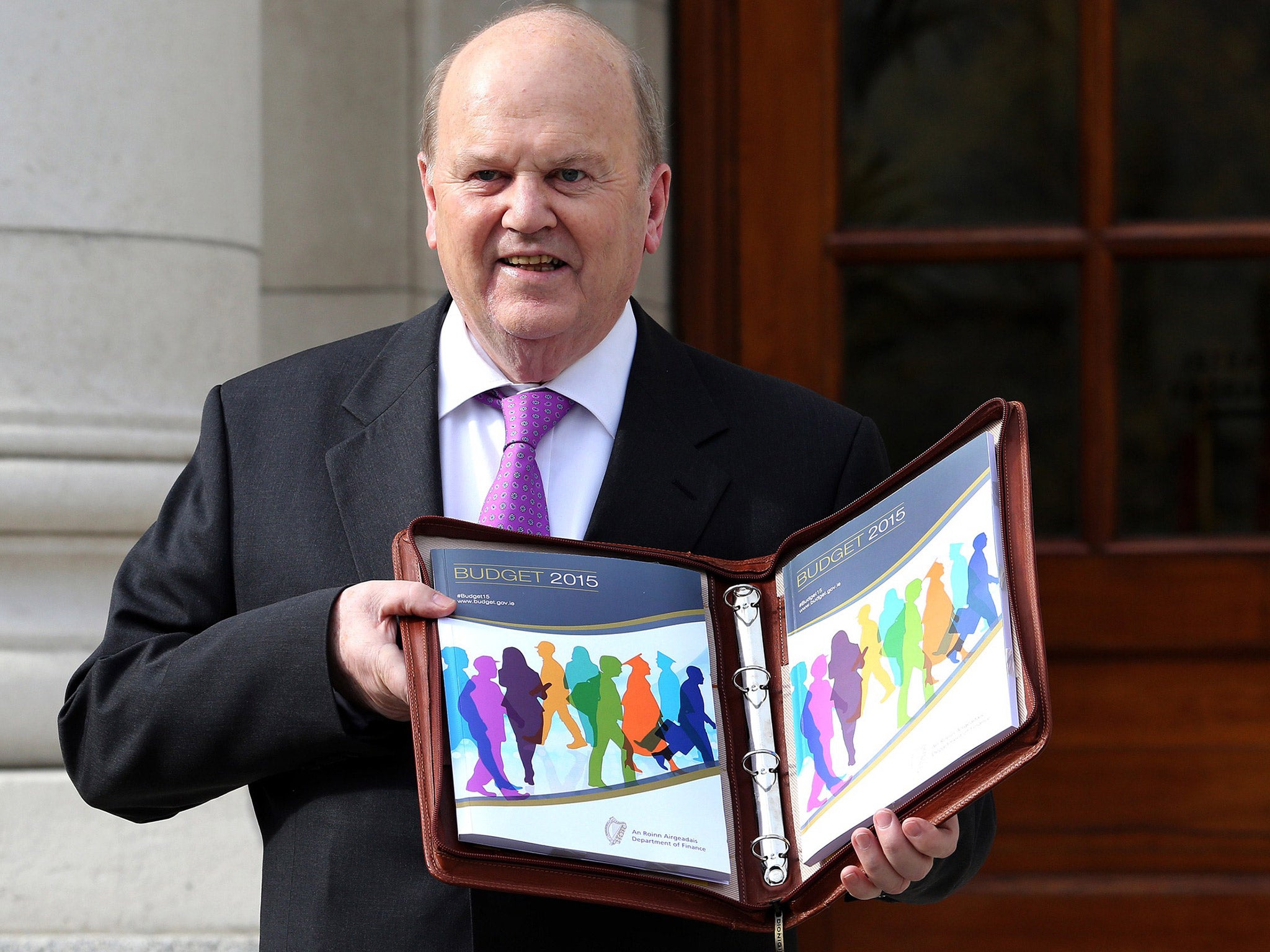Ireland goes austerity-free in new budget
Finance Minister announces plans to phase out a tax loophole used by multinationals

Your support helps us to tell the story
From reproductive rights to climate change to Big Tech, The Independent is on the ground when the story is developing. Whether it's investigating the financials of Elon Musk's pro-Trump PAC or producing our latest documentary, 'The A Word', which shines a light on the American women fighting for reproductive rights, we know how important it is to parse out the facts from the messaging.
At such a critical moment in US history, we need reporters on the ground. Your donation allows us to keep sending journalists to speak to both sides of the story.
The Independent is trusted by Americans across the entire political spectrum. And unlike many other quality news outlets, we choose not to lock Americans out of our reporting and analysis with paywalls. We believe quality journalism should be available to everyone, paid for by those who can afford it.
Your support makes all the difference.Ireland will phase out a tax loophole that multinationals use to save billions of dollars as part of sweeping changes to its corporate tax structure announced in its first austerity-free budget in seven years.
The ailing eurozone has pointed to Ireland’s economic resurgence as proof that austerity can work. But Dublin has also faced criticism from both the EU and the US for tax rules that have enabled firms such as Google and Apple to cut their overseas tax rates to single digits.
Finance Minister Michael Noonan laid out plans to end these tax arrangements. With one eye on an election in 18 months’ time, he also unveiled plans to cut the income tax burden on low- and middle-income earners frustrated by an uneven recovery.
Mr Noonan also announced changes to the intellectual property tax regime in a bid to keep Ireland attractive for business, while cuts to income tax will benefit workers.
“I am abolishing the ability of companies to use the ‘Double Irish’ by changing our residency rules to require all companies registered in Ireland to also be tax resident,” Mr Noonan told parliament.”
It is the country’s most significant tax reform since it lowered the corporate tax rate to 12.5 per cent in the late 1990s. At risk are the 160,000 jobs – almost one in 10 workers in the country – paid for by some 1,000 foreign firms.
Reuters
Join our commenting forum
Join thought-provoking conversations, follow other Independent readers and see their replies
Comments